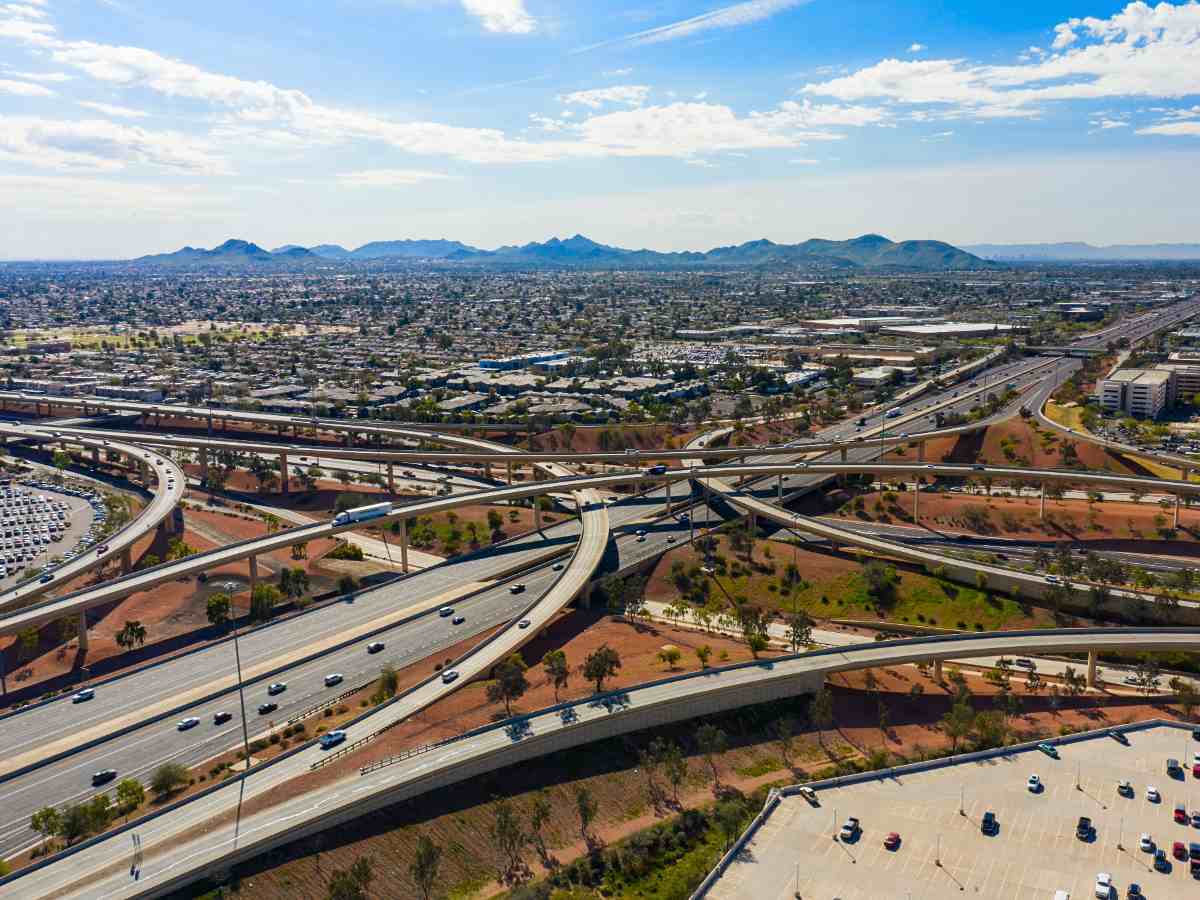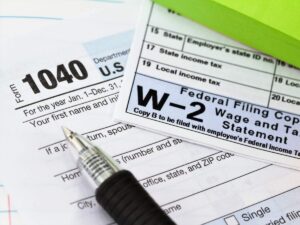Commuting in Phoenix is a key consideration for anyone moving to Phoenix, relocating to Phoenix, or simply trying to navigate the city more efficiently. With a rapidly growing population and a sprawling metropolitan area, understanding Phoenix’s transportation system, peak traffic times, and alternative commuting options can make daily travel smoother. Whether you’re driving, biking, or using public transit, this guide provides essential traffic advice to help newcomers adjust to life in the Valley of the Sun.
Phoenix Traffic and Roadways
Phoenix is known for its expansive freeway system, making driving the primary mode of commuting for most residents. Major roadways include Interstate 10, which runs east-west through the city, and Interstate 17, which connects Phoenix to northern Arizona. The Loop 101 and Loop 202 freeways provide easy access to suburban areas, while State Route 51 offers a direct connection from central Phoenix to northern neighborhoods. Knowing these routes can help commuters avoid congestion and plan the fastest way to their destination.
Traffic Advice for Phoenix Commuters
For those relocating to Phoenix, it’s important to be aware of peak traffic times. Rush hour typically runs from 7:00 AM to 9:00 AM in the morning and from 4:00 PM to 6:30 PM in the evening. Traffic congestion is most common on Interstate 10, particularly near downtown, and on the U.S. 60 Superstition Freeway, which serves commuters in the East Valley. Using real-time traffic apps like AZ511 or Google Maps can help drivers avoid bottlenecks and find alternative routes during busy hours.
Public Transportation in Phoenix
For those looking to avoid driving, Valley Metro provides public transit options, including buses and light rail. The Valley Metro Rail is a 28-mile light rail system that connects key areas such as downtown Phoenix, Tempe, and Mesa, making it an excellent option for students and professionals commuting in high-traffic areas. The bus system covers a wider area, offering multiple routes to suburban neighborhoods and business districts. Monthly transit passes are available, making public transportation a cost-effective alternative for commuters.
Carpooling and Ridesharing in Phoenix
Carpooling is a great way to reduce commuting costs and traffic congestion. The Valley Metro Rideshare Program helps match commuters with others traveling in the same direction, offering a convenient way to share rides and save on gas. In addition, Uber and Lyft operate extensively in Phoenix, providing flexible transportation options for those who prefer not to drive.
Biking and Walking in Phoenix
Phoenix has made significant improvements in bike-friendly infrastructure. The city features over 1,000 miles of bike lanes, with popular routes including the Grand Canal Trail and the Rio Salado Pathway. Pedestrian-friendly neighborhoods, such as Roosevelt Row, allow for convenient walking commutes to nearby businesses and entertainment districts.
Park and Ride Services
For commuters traveling from suburban areas, park-and-ride facilities provide a convenient option for connecting to public transit. These lots, located throughout the metro area, allow drivers to park their vehicles and take the Valley Metro Rail or bus into the city. Park and Ride lots are free to use and provide an excellent solution for avoiding downtown parking fees and traffic congestion.
EV Charging and Green Commuting
As Phoenix continues to embrace sustainable transportation, electric vehicle (EV) owners will find numerous EV charging stations throughout the city. Many workplaces and shopping centers have added EV charging options to support green commuting. Additionally, HOV lanes on Phoenix freeways allow carpoolers and electric vehicle drivers to bypass heavy traffic during peak hours, making eco-friendly commuting even more efficient.
Commuting to Phoenix Sky Harbor International Airport
For frequent travelers, Phoenix Sky Harbor International Airport is easily accessible by various transportation methods. The PHX Sky Train connects the airport to the Valley Metro Rail, providing a seamless transition from public transit to air travel. Rideshare services, taxis, and rental cars are also readily available, ensuring smooth airport commutes for both business and leisure travelers.
Remote Work and Flexible Schedules
As remote work becomes more common, many employers in Phoenix now offer flexible work schedules or hybrid office models. This shift has helped reduce congestion during traditional rush hours, making commuting in Phoenix more manageable. Newcomers to the city may find that a flexible work arrangement allows them to avoid peak traffic times and explore alternative commuting options that best suit their lifestyle.
Tips for Newcomers Commuting in Phoenix
For those moving to Phoenix, adjusting to the city’s commuting culture can take some time. Here are a few tips to make the transition easier:
- Plan Ahead: Check real-time traffic updates before heading out to avoid congestion.
- Explore Different Routes: Learning alternative streets and backroads can help bypass major freeway delays.
- Consider Public Transit: If you live near a Valley Metro Rail station, utilizing public transit can save time and money.
- Use Rideshare and Carpooling Services: Reducing the number of single-passenger vehicles on the road can help minimize traffic congestion.
- Invest in a Bike or Electric Scooter: Many neighborhoods and downtown areas are becoming increasingly bike-friendly, offering a great alternative to driving.
Navigating Commuting in Phoenix
Commuting in Phoenix presents a variety of transportation options tailored to different lifestyles. Whether you’re driving on the freeway, taking the light rail, or utilizing carpool services, Phoenix’s expanding infrastructure provides solutions for efficient travel. For those relocating to Phoenix, understanding traffic patterns and exploring alternative commuting methods can make daily travel more convenient. By utilizing public transit, biking, or planning strategic routes, newcomers can navigate Phoenix with ease and confidence.
Request your free Phoenix Relocation Guide here




